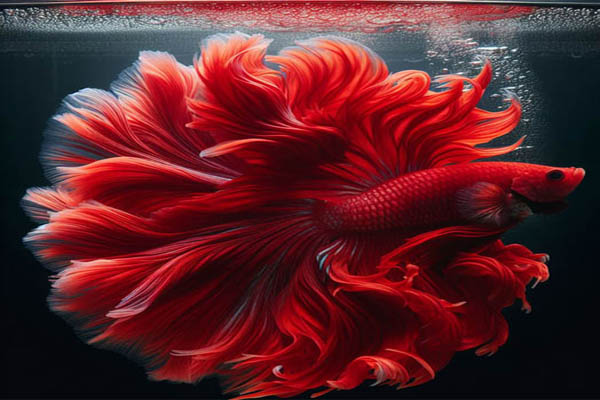How Long Can Betta Fish Go Without Food?
Betta fish can survive up to 2 weeks without food, but this is only true for healthy adults. Young betta fish (fry) can only go 3 days without food after becoming free-swimming. Although adult bettas can endure several days without food, it is not ideal for their health.
Here’s a breakdown of what you need to know:
- Survival Instincts: Like many fish, bettas have evolved to tolerate periods of food scarcity. Their bodies can slow down metabolism and tap into stored energy reserves (fats and proteins) to survive for a while.
- The Two-Week Mark: Experts estimate bettas can go up to two weeks without food, but this is a stressful experience and shouldn’t be a regular occurrence. The exact timeframe depends on factors like the betta’s age, health, and initial body condition. Weaker fish might struggle to reach this duration.
- The Price of Hunger: Even if your betta survives two weeks without food, there will likely be negative consequences. Their immune system weakens, making them more susceptible to diseases. They may also display lethargy, loss of vibrant colors, and difficulty swimming.
- After a Week: After the initial week, their bodies will start relying heavily on stored reserves. This depletion can lead to muscle wasting and organ damage if prolonged. When energy reserves become critically low, the body enters a state called starvation mode. This is a last-ditch effort to conserve energy by slowing down bodily functions even further, but it further weakens the fish and hinders its ability to recover.
Best Practices: Keeping Your Betta Well-Fed
Here’s how to ensure your betta gets the food they need:
- Short Trips (2-3 days): For short absences, a healthy betta fish can usually sustain itself. However, offering a small amount of slow-release food can help minimize stress.
- Longer Trips (4+ days): Having someone feed your fish or using an automatic feeder is highly recommended. This ensures your betta receives the necessary nutrition and minimizes the risk of health problems.
A Cautionary Tale: When Feeding Fails
Always have a backup plan! This story highlights the importance of reliable pet care:
I once made arrangements for a friend to feed Finno, my beloved betta, while I visited my mom. Despite clear instructions, my friend, overwhelmed by his own busy schedule, neglected to feed Finno for 3 days.
Upon my return, I was devastated to see Finno’s lethargy, dull colors, and weak movements. He ravenously devoured the food I offered, a stark reminder of his ordeal.
Thankfully, Finno showed remarkable resilience. With careful feeding over the next few days, his energy returned, and his colors brightened once more. This experience reinforced the importance of reliable pet care to ensure my betta’s well-being, no matter the circumstances.


